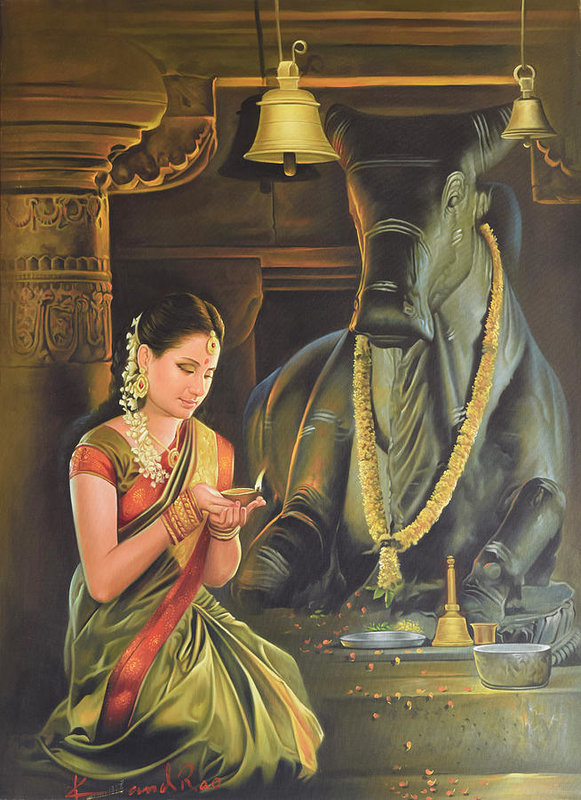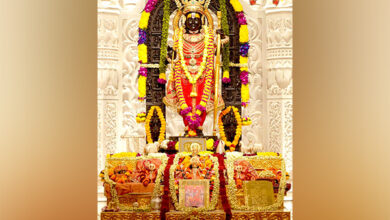Hinduism and Animals: How every living creature matters for this religion.


Taking a look closer, Hinduism is the only religion in which various animals are closely related to God, and some are worshipped as one of them.
In Hinduism, it is said that when Brahma created the animals, he hid a specific secret in each of them to signify their spiritual importance to humans. Hindus regard all living creatures as sacred: mammals, fishes, birds, and more.
They acknowledge this reverence for life in their special affection for the cow. Nepal and India, being Hindu majority countries, worship different animals.
Although there is an endless list of animals that are worshipped/ sacred, here are a few:
Elephant / Lord Ganesh:
In Hindu epics, there is a story in which Lord Shiva beheads his own son, Ganesh, without knowing about that the boy is his son. After Parvati, wife of Lord Shiva, pleads to Shiva, he orders his troops to bring the head of whoever living beings they eye first. Then the troops find an elephant and bring the head of the animal. Then, Lord Shiva attaches the head to the body of a boy. Since then, the elephant is treated as Lord Ganesh.
Sacred Cow / Mother:
It is the national animal of Former Hindu Kingdom, Nepal. The Hindus worship cow as the goddess and symbolises motherhood, kindness and forbearance. Thus killing and eating the cow is strictly prohibited in Hinduism. The cow milk is considered pure and used for bathing the deities, making panchamrit and various rituals. Even the urine and dungs are considered to be pure and are used in various rituals. Lord Shiva is called from another name, Gorakhnath, which means God of Cows.
Monkey:
It is the most famous among the animals Hindus worship. The god’s name is Hanuman, the son of Lord Pawan (air). He is the god with unlimited power, pictured as a true devotee of Lord Ram. He is well described in the Hindu epic, Ramayana. He is considered as the Rudra avatar of Lord Shiva. This incarnation shows the perfect example of immense strength, courage, humility, and highest devotion.
Dog:
This animal is considered as the best friend of humans but they do have a religious significance. In the festival of Tihar, dog is worshipped in Nepal. They are believed to guard the doors of hell and heaven. Sarama is considered as the mother of all dogs. Dogs are also worshipped as the vehicle of Lord Bhairav.
Goat:
Worshipped as lord Naigamesha also known as Harinegameshi, is a goat-headed or deer-headed deity, associated with children. He also appears in Jain as well as Hindu traditions, associated with the war-god Kartikeya and childbirth.
Snake:
In Hinduism, Lord shiva wears a Nāg Indian Cobra around his neck as an ornament. Cobra is the most sacred among all the snakes in India-Nepal. There is a special festival of snakes called Nag Panchami, celebrated by Hindus in India, Nepal and other countries. People offer prayer and milk, and worship the snake. In south India, live snakes are worshipped.
Bull:
It has a special significance in Hindu religion; Lord Shiva is also known to Vrishabanath, meaning Lord of Bulls. Nandi, the divine bull, is considered to be his vehicle and we can see a huge statue of the bull in Pashupatinath. The bull is considered to represent knowledge, scholarship, devotion, surrender, renunciation, obedience, strength, and virility.
Pig:
Third of the 10 incarnations of Lord Vishnu is called ‘Varaha’ which is in the form of a wild boar. It is most commonly associated with the legend of lifting the Earth (personified as the goddess Bhudevi) out of the cosmic ocean.
Lion/Tiger:
Also known as Goddess Durga’s companion and ride, Lion is considered as a symbol of power, valour and virtue.
Although the list is endless, Hinduism as preserved animal rights for millenniums and it continues to do so which is quite ironic for religions which call for sacrifice of animals or have made animal killing a part of life.
The respect for animal rights in Hinduism and its sister religions like Jainism and Buddhism also derives from the doctrine of ahimsa.
Particularly in Hinduism, animals contain a soul just like humans and when sentient beings die, they can either be reincarnated as a human or as an animal which is another reason why these beliefs have resulted in most Hindus practicing vegetarianism. Also making India the mode vegetarian country in the world despite having second-largest Muslim (meat eating population) population.



